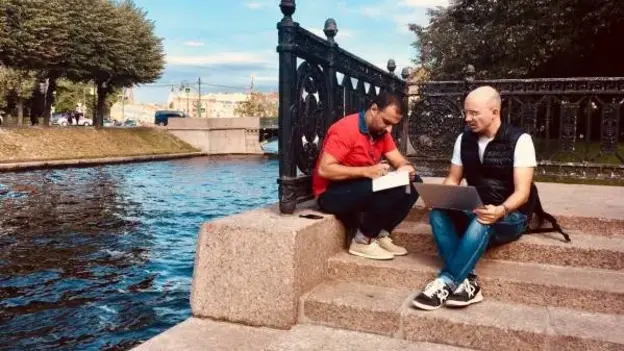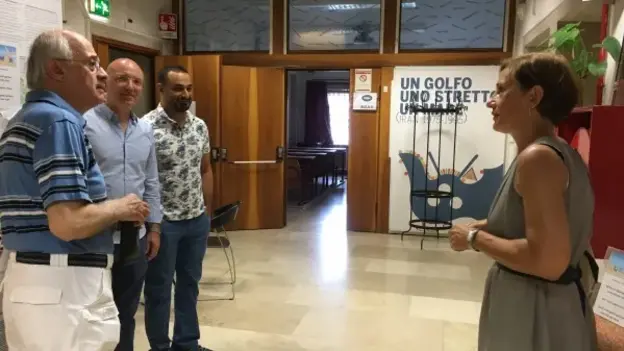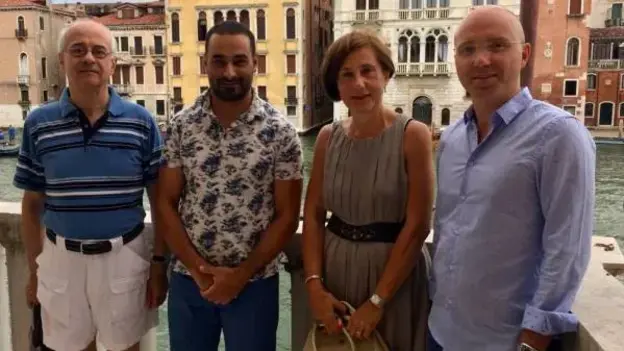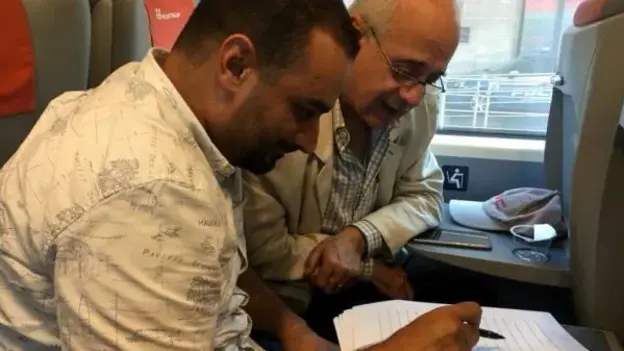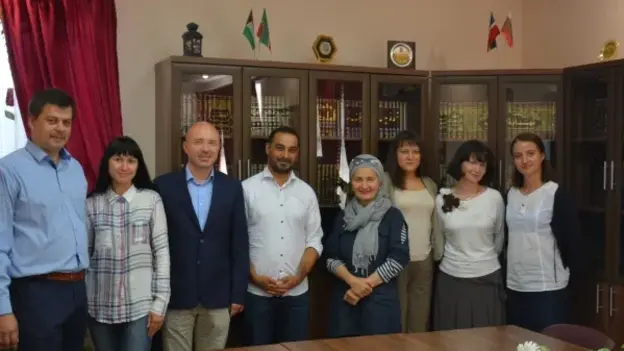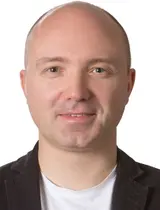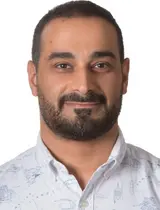Tandem Project
Early Arabic Studies in Rome, Venice and Kazan
Fruitful encounters between Germany (and Europe) and the Arab world are closely related to the emergence of systematic teaching and philological studies of the Arabic language in early modern Europe. On the institutional level, this development was pioneered at the University of St Andrews in Scotland (UK) and the University of Leiden in the Netherlands with the introduction of the first Chairs in Arabic as early as in the sixteenth century. Similar centres of research and teaching of Arabic were later on established at other universities in Europe.
Several universities in Germany, especially Leipzig, Halle, and Berlin as well as the University of Vienna in Austria played a crucial role in developing and promoting Arabic philology in Europe, which resulted also in the establishment of Arabic Studies in Russia at the universities in St Petersburg and Kazan by German professors and Russian scholars trained in Germany. The development of Arabic philology reflected not only important innovations in the academia, but represented a direct response to the growing interest in the Arab world and reflected wider intellectual discourses and cultural challenges of the time related to negotiating the European identity and such issues as colonialism and orientalism. Remarkably, the philological innovation fostered in European academia not only promoted a better understanding of the Arab culture by the Europeans, but also had a direct and lasting impact on the approach of Arabs towards their native language.
The export of new philological methods to the Arab world was strongly stimulated by Arab intellectuals trained in Europe such as for instance Jirmānūs Farḥāt (1670 – 1732), who during his studies at the Maronite College in Rome got acquainted with the philological methods developed by Thomas Erpenius (1584 – 1624), one of the pioneers of Oriental studies in Europe. On the other hand, some European scholars of Arabic actively promoted new philological scholarship through their teaching and research in the Middle East, first of all in Beirut, Lebanon and Cairo, Egypt. Among them were Cornelius Van Alen Van Dyck (1818 – 1895), Vladimir Girgas (1835 – 1887) and Carlo Alfonso Nallino, (1872 – 1938), to name but a few.
While the history of early Arabic studies in the Netherlands has been recently re-examined by Arnoud Vrolijk and Richard van Leeuwen in the book ‘Arabic Studies in the Netherlands: A Short History in Portraits, 1580 – 1950’ published in 2013, for the Arabic Studies in Germany and Russia one has still to rely on the publication from the year 1955 by Johann Fück ‘Die arabischen Studien in Europa bis in den Anfang des 20. Jahrhunderts’ and from the year 1950 by Ignaz Kratschkowski ‘Die russische Arabistik, Umrisse ihrer Entwicklung (Übersetzt und bearbeitet von Otto Mehlitz in 1963)’.
In their AGYA project ‘Language, Identity and Cultural Exchange: Early Arabic Studies in Europe and the Middle East’ Academy AGYA members Kirill Dmitriev and Bilal Orfali revisited the foundations of Arabic Studies in Europe and the Middle East through investigating yet unstudied archival material at universities and research institutions in Scotland, Italy, Germany, Russia and Lebanon. The project’s findings will help contextualize the history of this academic field in the broader perspective of cultural exchange between Europe and the Arab world.
Besides further exploring and evaluating the relevant archives at their home institutions, the University of St Andrews and the American University of Beirut, both scholars undertook research visits to the libraries and archives in Kazan and St Petersburg (Russia) as well as Rome and Venice (Italy). The aim was to collect additional research material in order to compare it with their findings in Scotland and Lebanon.
At their research visit to Rome and Venice, Bilal Orfali and Kirill Dmitriev were accompanied by Prof. Ramzi Baalbaki (American University of Beirut), a distinguished scholar of Arabic Studies. In July 2018, the team met with Antonella Ghersetti, Professor of Arabic at the Department of Asian and North African Studies at Ca' Foscari University in Venice. With Prof. Ghersetti, the scholars also discussed the perspectives of establishing a research network and collaborative projects in the future.
A few weeks later in August, academic networking in respect to the project was continued in Kazan, where Bilal Orfali and Kirill Dmitriev met with faculty members of the Kazan State University. The library of the Kazan State University is well-known for its bibliographical collections. The collection contains about 15000 manuscripts and 3000 unique rare books. The investigation of the Arabic manuscript collections preserved in Kazan proved to be of particular importance and interest for the project. As another result of their visit, both tandem partners were invited to join the editorial board of the newly established research journal ‘Eurasian Arabic Studies’ published in Kazan.
All collected material will be published in an online publication and an exhibition on the topic of ‘The History of Arabic Studies in Europe and the Middle East in Early Modern Period’ will be realized in 2019.
Two books will be published in 2019 as a major outcome of the tandem project: ‘The Claim of Arabic: Arabic Humanities at the American University of Beirut’ (Bilal Orfali), and ‘Ignaz Krackovsky (1883-1951), ein Arabist in seiner Zeit,’ a German translation of the biography of the Russian scholar Ignaz Krackovsky by Dolinina, Anna (Newol'nik Dolga. Sankt Petersburg 1994).
- Project Title
- Language, Identity and Cultural Exchange: Early Arabic Studies in Europe and the Middle East
- Year
- 2018
- Funding Scheme
- Tandem Project
- Countries Involved
- Italy, Lebanon, United Kingdom, Germany
